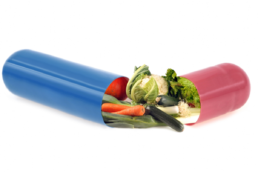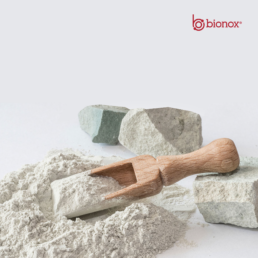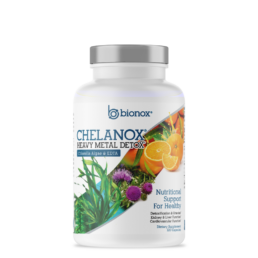Top 10 Reasons Your Nitric Oxide Supplements Are Junk
At Bionox, we know nitric oxide and have tried almost everything. We’ve all been there: You buy a nitric oxide supplement hoping to boost your workout performance, give you more energy, or lower your blood pressure, only to be left disappointed. So, why isn’t your supplement living up to the hype? Read on to discover the top ten reasons it might be a total waste of money!
Why Your Nitric Oxide Supplements Are Junk
1. Insufficient Dosage of L-Arginine or L-Citrulline
The primary ingredients that help boost nitric oxide levels are L-Arginine and L-Citrulline. If your supplement doesn’t contain enough of these, it might be time to switch. Research suggests a therapeutic dose is key! It’s always amazing to us that customers who have had major improvements with our products ask us why we can’t sell a product for $29.00, like the “other guys”. The reason is that they are selling you something for $29.00 THAT DOES NOT WORK. Imagine you see a fake jet engine part from some scam company in China for $500.
The part is fake, dangerous, and does not work. Period. Now you see that part made by the real manufacturer, and it costs $10,000. This is the same situation with many nitric oxide supplements. People are trained to look for items so cheap they fall way way below any real therapeutic threshold. Newsflash, stuff that works costs more money! If your only concern is price, then you are only deceiving yourself by buying cheap junk. You feel good that you are taking something for your heart, and great, it was cheap, but you are 100% wasting your money. It’s better to burn it than buy much of today’s so-called NO Boosters.
2. Lack of Complementary Ingredients
Have you ever heard of camu camu berry, horse chestnut, hawthorn berry, vitamin D, or pomegranate extract? If the answer is no, then for sure, your nitric oxide supplements are junk! They’re powerful nitric oxide boosters supporting heart health. If your supplement doesn’t include these superfoods, you’re missing out. Learn more here. Again, as you are going to hear us say time and time again, just taking arginine or citrulline by themselves is not efficient. Antioxidants and herbs can significantly boost your ability to use, absorb, and extend the life of nitric oxide in your body.
3. Too Many Fillers
Many supplements are packed with unnecessary fillers that offer no real health benefits. Always opt for clean supplements like Bionox’s Ultimate Nitric Oxide Nutrition, which prioritizes quality ingredients. Beetroot is actually one of them. Much of the so-called no boosters with beetroot have inactive beetroot with ZERO health benefits. That’s right, it’s almost all complete JUNK. If your beetroot product does not list how many nitrates it has in it, then it almost certainly has NONE.
4. Not Tested for Purity
Supplements that aren’t third-party tested might contain contaminants or not deliver on the claimed ingredients. Make sure you’re choosing a reputable brand. Hint: Amazon or Walmart are probably not the most reputable places to find supplements. Check out sites like WellRabbit.
5. Short Duration of Effect
If you’re only getting a boost for a few hours, it’s not optimal. If your formula has low amounts of aminos, it may actually still provide a boost, but for mere minutes, not hours. To have a real physiological effect that actually changes your body and works towards health or energy, you need to have NO active in your system for as long as possible.
A quality supplement like Bionox’s formula provides support for up to 24 hours, and yes, you absolutely want to boost your nitric oxide as you sleep! It boosts HGH!
6. Overpriced for the Quality
Some brands jack up their prices without offering the necessary quality to back it up. Don’t fall for fancy packaging or stupid celebrity endorsements. They are paid to lie, and every bodybuilder has the so-called secret. The real secret, as we all know, is massive amounts of illegal ball-shrinking DRUGS.
7. Poor Absorption Rates
It doesn’t matter how good the ingredients are if your body can’t absorb them. Look for supplements that include absorption enhancers like Astragin, which, of course, we use.
8. Tastes Terrible
Let’s face it; if it tastes bad, you’re less likely to take it. Quality supplements focus not just on health benefits but also on taste! Here is another newsflash: good natural flavors cost more. We use natural fruit flavors because they not only taste so much better but they also have added nutritional benefits. If you want to drink purple, drink school lunch flavored sugar with food coloring, and think it’s going to be quality, all the power to you. It’s almost certainly hurting your NO production at best, and at worst, it’s probably really bad for you.
9. Unsupported Claims
Always be wary of supplements making claims that sound too good to be true without the science to back them up.
10. Not Environmentally Friendly
In today’s world, sustainability matters. If your supplement brand isn’t considering its environmental impact, think twice. Brands like Bionox, with their Biobottles, show they care about the planet. If we care enough to think about how our products are handled in the landfill when you are totally done with the product, imagine the care we take to make sure the products work for you when you actually have them in your home!
Conclusion: With the plethora of nitric oxide supplements on the market today, it’s crucial to pick one that truly delivers and is reputable. Your nitric oxide supplements are junk if you have been buying cheap, low-dose garbage. By watching out for these common pitfalls listed, you’ll be well on your way to finding a product that not only works but also aligns with your values. Remember that good products are going to cost more, will contain many more ingredients other than just amino acids or beet root.
Heart Healthy Emergency Meal Prep: Preserving Nitrate Counts and Ensuring Longevity
Heart Healthy Emergency Meal Prep?
In an unpredictable and unstable world, emergency preparedness becomes a central concern for many and a very prudent endeavor to invest in. In case of an emergency, we may scramble to ensure safety and care for immediate necessities, while nutrition would take a backseat. Considering that heart disease remains a leading cause of mortality, it’s critical to focus on heart health even during emergencies, especially if they turn out to be longer term than we imagined.
Thus, understanding heart healthy emergency meal prep and the nuances of preserving nitrate counts in foods becomes essential. This guide, backed by Bionox’s expertise and its product, Ultimate Nitric Oxide Nutrition, seeks to illuminate this path.
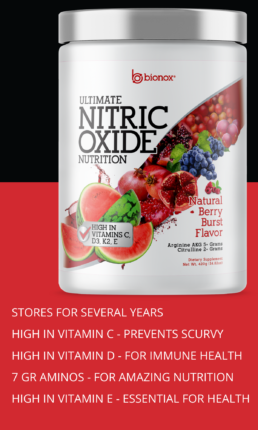
The Heart-Health Connection
A heart-healthy diet revolves around consuming foods rich in nitrates and antioxidants, which promote cardiovascular function and overall wellness. Nitric oxide, a compound our body produces with help from nitrates, plays a pivotal role in regulating blood pressure and enhancing blood flow, which is crucial for optimal heart health.
Understanding the Role of Nitrates in Heart Health: What are Nitrates Anyway?
Nitrates are compounds found naturally in certain vegetables like beetroot, arugula, and a few others and are converted into nitric oxide in the body via bacteria found in your mouth. Nitric oxide plays a crucial role in maintaining vascular, arterial, and heart health, as it helps to dilate blood vessels, improve blood flow, and reduce blood pressure, to name just a few benefits of this amazing compound. A diet rich in nitrates can, therefore, contribute significantly to improving cardiovascular health. Interesting and of note for this discussion, nitrates are sensitive to heat and can be depleted during cooking or prolonged storage. This makes it challenging to preserve their heart-healthy benefits, especially in emergency situations where access to fresh produce may be limited.
What can extend the life of nitrates in vegetables like Beets?
Adding vitamin C (ascorbic acid) can help preserve the nitrate content in vegetables like beets when they are stored for longer periods of time. Vitamin C plays a major role in preventing the conversion of nitrates to nitrites, which is especially important if you’re aiming to consume these vegetables for their nitrate content for potential health benefits, such as supporting heart health.
When nitrates turn into nitrites in the presence of certain enzymes and bacteria, you lose the potential cardiovascular benefits associated with nitrates. Nitrites, on their own, are not harmful and can even convert back to nitric oxide in the body under certain conditions. However, in the presence of proteins (like in some processed meats), nitrites can form nitrosamines, some of which have been implicated as potential carcinogens. Thus, there’s often a concern about nitrite levels in foods.
By adding vitamin C to preserved veggies, you are not only preserving the nitrate content but also reducing the potential for nitrosamine formation if those vegetables are consumed with protein sources. This is one reason why vitamin C (or erythorbic acid, a derivative of ascorbic acid) is often added to cured meats—it acts as a nitrosamine inhibitor.
Bionox and Ultimate Nitric Oxide Nutrition: A Lifeline for Your Heart
In times of crisis, having a reliable and effective supplement can make all the difference. Bionox’s Ultimate Nitric Oxide Nutrition (UNON) is precisely that. Packed with a potent blend of ingredients designed to boost nitric oxide levels in the body, UNON ensures that your cardiovascular system receives the support it needs, even when your diet might be lacking. With a shelf life of four years or more and efficacy that extends even beyond that, UNON is an indispensable part of any emergency prep kit.
Step-by-Step Guide to Heart Healthy Emergency Meal Prep
1. Planning and Selection of Ingredients: Start by listing down nitrate-rich foods such as beets, spinach, arugula, and celery. These should form the cornerstone of your meal prep plan. Remember, the goal is to preserve their nitrate content, so consider how you’ll store and prepare them.
2. Proper Storage Techniques: Invest in airtight containers and vacuum-sealed bags to store your ingredients. This prevents oxidation and helps retain the nitrates in the food. If you have access to refrigeration, use it. For longer-term storage, consider freezing portions of cooked or raw nitrate-rich foods.
3. Cooking and Preparation: Opt for cooking methods that preserve the integrity of nitrates. Steaming and roasting are preferable to boiling. If you must boil, try to incorporate the cooking water into your meal, as nitrates are water-soluble and can leach out during the cooking process.
4. Diversify Your Diet: Include a variety of heart-healthy foods in your meal prep. Focus on whole grains, lean proteins, and a range of fruits and vegetables to ensure a balanced diet. Remember, variety is key to covering all your nutritional bases.
5. Limit Processed Foods: Processed foods often contain high levels of sodium and unhealthy fats, which can negatively impact heart health. Aim to prepare whole, natural foods as much as possible, and be mindful of the ingredients in any packaged foods you might use.
6. Incorporate Healthy Fats: Include sources of omega-3 and monounsaturated fats in your diet, such as flaxseeds, walnuts, olive oil, and avocados. These fats are beneficial for heart health and provide a sustained source of energy.
7. Stay Hydrated: Ensure you have access to clean drinking water. Staying hydrated is crucial for maintaining blood volume and ensuring that your cardiovascular system functions optimally.
8. Make Use of Bionox’s Ultimate Nitric Oxide Nutrition: UNON is designed to be versatile and can be incorporated into a variety of meals or taken on its own. Including UNON in your emergency meal prep ensures that you are providing your body with the essential nutrients it needs to maintain cardiovascular health, even in challenging times. In times of stress, your blood pressure may spike massively, therefore necessitating even more the need for something like our UNON formula.
Final Thoughts
Preparing for emergencies is a responsible act, to say the least, and ensuring that your emergency meals are heart-healthy is a critical aspect of that preparation. By choosing the right heart-healthy ingredients, employing proper storage techniques and cooking methods, and incorporating a potent supplement like Bionox’s Ultimate Nitric Oxide Nutrition, you can ensure that your emergency meals are not just sustenance but a source of strength and health. Remember, your heart is at the core of your well-being, and taking steps to protect it, even in emergencies, is an investment in your future health and vitality.
Do Amino Acids Boost Nitric Oxide?
Do Amino Acids Boost Nitric Oxide? If you have heard about l-arginine or l-citrulline and their potential for elevating nitric oxide levels, you may have asked yourself that question.
Some amino acids do, in fact, help your body produce nitric oxide, some do not, and some may work for younger people and not as well as you age. Let’s dive into what Aminos help with Nitric Oxide and also what other things they can do.

L-Arginine
- Boosts Nitric Oxide? Yes.
- Health Benefits: L-Arginine is a precursor to the production of nitric oxide, making it critical for NO synthesis in your body. It also supports protein synthesis, wound healing, and immune function. It works best when combined with L-Citrulline. Together, they provide more of a nitric oxide boost than just one taken alone. There is so much information out there on arginine, it has literally hundreds of thousands of studies. It has been shown to boost nitric oxide time and again.
- Reference: NIH – Arginine
L-Citrulline
- Boosts Nitric Oxide? Yes.
- Health Benefits: L-Citrulline increases arginine levels in the body, which in turn helps increase NO production. This may seem counterintuitive and begs the question, “Why not just take L-Arginine?”. This is a great question and one that has been addressed by tons of recent research. The choice between L-arginine and L-citrulline isn’t about which one is “better,” but which one might be more effective for specific purposes due to their different metabolic pathways and absorption rates.
Here are some reasons why L-citrulline is different from L-arginine:
Better Absorption:
L-citrulline is absorbed more efficiently in the intestines than L-arginine typically. When you consume L-arginine, a significant portion can be broken down in the liver before it reaches systemic circulation and can be used by your body. L-citrulline bypasses this extensive first-pass metabolism in the liver, and once it is absorbed, part of it is converted to L-arginine in the kidneys.
Sustained Increase in Blood Arginine Levels: The conversion of L-citrulline to L-arginine in the kidneys results in a more sustained increase in blood arginine levels compared to consuming L-arginine directly. This prolonged elevation could produce more consistent nitric oxide over time for many individuals.
Lowered Risk of Gastrointestinal Distress: L-arginine can cause gastrointestinal distress at high doses. This is not the case for equivalent doses of L-citrulline. Some forms of Arginine, however, are easier to digest than others.
Synergistic Effects with Other Metabolites: L-citrulline is part of the urea cycle, and its metabolism might have added benefits due to the other metabolites in this cycle, like L-ornithine. So again, it still produces L-Arginine in your system, but it has a few extra goodies in it.
Safety and Tolerability: L-citrulline, especially when derived from natural sources like watermelon, can be a safer and more tolerable option for some people. ( Yup, we use Watermelon in our products! )
Other Potential Benefits: There’s ongoing research into L-citrulline’s potential advantages beyond just nitric oxide production, including muscle protein synthesis and ammonia detoxification, immunity, and so much more. It may enhance exercise tolerance in people with certain cardiovascular conditions, support the heat, veins, and arteries, and a long list of other potential benefits. - Reference: Citrulline and Exercise Performance
L-Lysine
- Boosts Nitric Oxide? No.
- Health Benefits: L-lysine is vital for protein synthesis, normal hormone production, and calcium absorption. It’s also often used to prevent and treat cold sores (herpes simplex labialis).
- Reference: NIH – Lysine
Taurine
- Boosts Nitric Oxide? Not directly.
- Health Benefits: Taurine has several functions, including maintaining proper hydration and electrolyte balance in cells, forming bile salts, and supporting the general function of the central nervous system and eyes. Taurine supports heart health by helping to regulate blood pressure and heart rate. It may help reduce the risk of cardiovascular disease by possibly improving the levels of blood lipids and reducing systemic inflammation.
- Reference: Taurine: A “very essential” amino acid
L-Tyrosine
- Boosts Nitric Oxide? No.
- Health Benefits: L-Tyrosine is important for producing neurotransmitters that regulate mood, such as dopamine, norepinephrine, and epinephrine. It is a common ingredient in many nootropic supplements and some energy drinks. These neurotransmitters that L-tyrosine helps produce, especially epinephrine and norepinephrine, are essential for the body’s stress response. During stress, these neurotransmitters are released to potentially help prepare the body to respond, leading to increased heart rate, blood flow to essential organs, and alertness. Proper synthesis and function of these neurotransmitters are critical for an appropriate stress response. Norepinephrine plays a role in constricting blood vessels, which can elevate blood pressure. Individuals with certain conditions that involve an imbalance in neurotransmitter production could benefit from L-tyrosine supplementation to help regulate blood pressure. However, it’s also worth noting that excessive norepinephrine can lead to hypertension, so it’s a delicate balance.
- Reference: NIH – Tyrosine
L-Glutamine
- Boosts Nitric Oxide? No.
- Health Benefits: Glutamine is the most abundant amino acid in the bloodstream and serves multiple vital functions in the body. L-glutamine supports gut health, immune function, and wound healing. It’s also a vital nutrient for rapidly dividing cells, including those of the gut and immune system. Even though it does not produce nitric oxide, glutamine is incredibly useful for supporting the body’s creation of Glutathione, an essential antioxidant.Glutathione (GSH) is a tripeptide, meaning it is composed of three amino acids: cysteine, glutamate (derived from glutamine), and glycine. The synthesis of glutathione in the body occurs in two main steps:
- First Step: The enzyme γ-glutamylcysteine synthetase catalyzes the binding of cysteine to glutamate to form γ-glutamylcysteine. This step is rate-limiting, meaning it’s the slowest step in the synthesis process and often determines the overall rate of glutathione production.
- Second Step: The enzyme glutathione synthetase adds glycine to the γ-glutamylcysteine molecule, forming glutathione.
- Reference: Glutamine: Metabolism and Immune Function, Supplementation and Clinical Translation
L-Leucine
- Boosts Nitric Oxide? No.
- Health Benefits: L-Leucine is a branched-chain amino acid (BCAA) that is important for protein synthesis and muscle repair. It also helps regulate blood sugar levels.
- Reference: Leucine as a pharmaconutrient to prevent and treat sarcopenia and type 2 diabetes
L-Isoleucine
- Boosts Nitric Oxide? No.
- Health Benefits: Another BCAA, L-Isoleucine is crucial for hemoglobin production and might help with glucose consumption during physical activity.Many products use L-Isoleucine, especially within the sports nutrition and bodybuilding sectors. It’s a common ingredient in protein powders, amino acid supplements, and many recovery drinks. The use of L-Isoleucine, alongside the other BCAAs, is touted for its potential to enhance muscle recovery, reduce muscle soreness, and improve athletic performance in healthy individuals. This stems from BCAAs’ role in muscle protein synthesis and energy production during exercise and has been widely researched.Beyond athletic performance use, L-Isoleucine has several potential health benefits that may be of interest. Firstly, there’s some evidence that it may support blood sugar regulation. L-isoleucine can increase the uptake of glucose into muscle cells and improve glucose metabolism, which can be particularly beneficial after periods of physical activity when muscle cells are more receptive to glucose. By supporting glucose uptake and utilization, L-Isoleucine might play a role in maintaining stable blood sugar levels.L-isoleucine can also promote wound healing. Amino acids are the building blocks of proteins, and proteins, such as collagen, are essential for the repair and regeneration of tissues. Therefore, having an adequate supply of essential amino acids, including L-Isoleucine, can support the body’s natural healing processes.Additionally, as with other amino acids, L-Isoleucine is involved in synthesizing various proteins and enzymes critical for numerous physiological processes. This means that an adequate intake is vital for overall health, ensuring that the body has the necessary components to carry out its daily functions efficiently.While L-isoleucine is popularly recognized for its role in sports nutrition, its impact on health is multifaceted. L-Isoleucine plays an integral role in maintaining health and well-being, from supporting glucose metabolism to promoting tissue repair and being a foundational component for protein synthesis.
- Reference: Amino Acid Properties and Consequences of Substitutions
L-Valine
- Boosts Nitric Oxide? No.
- Health Benefits: As the third BCAA, L-Valine promotes muscle growth and tissue repair. It’s also involved in energy production.
- Reference: BCAAs and Brain Function
L-Methionine
- Boosts Nitric Oxide? No.
- Health Benefits: L-methionine is essential for tissue growth, absorption of minerals, and the production of essential molecules like taurine, L-cysteine, and L-carnitine.
- Reference: Methionine metabolism: Major pathways and enzymes involved and strategies for control and diversification

Do Amino Acids Boost Nitric Oxide?
The answer is yes; some do, as can be seen above. With Argnine and Citrulline both being important. There are a few important things to note: how to take them, when, and in what ratios.
Do Amino Acids Boost Nitric Oxide when taken in small dosages? Will the typical $29.99 so-called Nitric Oxide booster really produce nitric oxide in my body?
The answer is yes, but the real question is how long do they produce it? Therein lies the issue. Your cheap 1000mg arginine product or 500mg citrulline product will produce nitric oxide in your system for a very short period of time, producing very minimal health or energetic effects. Most studies indicate that around 5 grams of arginine and 2 grams of citrulline are ideal, and they must be taken together for maximum effect. That is roughly a 2:1 ratio.
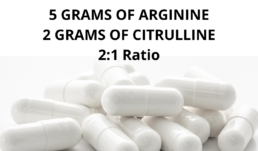
Where do Amino Acids Come From?
Amino acids used in supplements and for food items and human consumption are typically manufactured via two main methods: extraction from natural sources and bacterial or yeast fermentation. Both methods have their own advantages and special considerations. Let’s explore these methods and address the concerns of purity, cleanliness, and potential contaminants. If you are considering using amino acids, knowing where they come from, how they are made, and safety concerns should help you make a better decision on what kinds to use and from what source.
- Extraction from Natural Sources:
Some amino acids are derived directly from protein-rich natural sources like animal tissues or certain plants. The raw materials used in this process are subjected to something called ‘hydrolysis,’ which is the process of using acid or enzymes to break down the proteins into individual amino acids. After this is complete, various purification processes are performed to obtain the specific amino acids in their purest form. - Bacterial or Yeast Fermentation:
For many different types of amino acids, especially those that are labeled as vegan or vegetarian, bacterial or yeast fermentation is the primary method of production. Some types of aminos are not yet available via this method.The bacterial and yeast fermentation processes can produce a wide range of amino acids. However, the capability to produce many types of specific amino acids often depends on the microbial strain used and its metabolic pathways. While many amino acids can be synthesized efficiently using this microbial fermentation process, some might be more challenging or possibly less economically viable to produce in this manner compared to extraction or chemical synthesis.Historically speaking, amino acids such as L-methionine, L-phenylalanine, and L-tryptophan have been more challenging to produce in high yields using microbial fermentation. However, today’s advances in metabolic engineering and biotechnology have enabled improved manufacturing and production of these amino acids in recent years.It’s also worth noting that certain specialized amino acids or derivatives, which might be used for very specific health applications or research purposes, might be synthesized using other methods if fermentation isn’t feasible or efficient.Currently, the list of amino acids unavailable via microbial fermentation is continuously shrinking as advances in biotechnology, genetic engineering, and metabolic pathway research enable the modification of microorganisms to produce an ever-expanding array of compounds. If there’s a specific amino acid or set of amino acids you’re curious about, it would be best to look into the current production methods, as they can evolve over time.In this method, specific strains of bacteria or yeast that have the ability to produce high yields of the desired amino acid are grown in large fermentation tanks. Once the fermentation process is complete, the amino acid is extracted and purified from the fermentation broth.
Purity and Cleanliness:
Most reputable supplement manufacturers prioritize the purity and cleanliness of their products, but certainly not all, as there are many reports of shady companies with cheap Chinese-made ingredients with no purity testing. After a clean manufacturing facility creates a batch of aminos, the amino acids undergo various purification processes to remove any residual solvents, by-products, or contaminants.
MAKE SURE THEY ARE GMP
Good Manufacturing Practices (GMP) standards are often followed by quality supplement manufacturers, which ensure that amino acid-based products are produced consistently and meet quality standards. If you want to ensure your amino acids are clean, look for GMP-certified products.
If a product is GMP certified, it normally means the manufacturer has demonstrated a strong regulatory commitment and compliance with international GMP standards such as purity, cleanliness, and transparency.
Potential Contaminants:
Like all manufactured products, there’s a potential for contaminants if quality control measures aren’t stringent. These contaminants could include residual solvents from the extraction process, heavy metals, or impurities from raw materials, in other words, some really nasty stuff! Some low-quality or improperly stored amino acids might also be prone to bacterial or fungal contamination. So, more than just GMP is needed. You should look for products that have been tested and come with what is called a COA.
Consumer Tips:
For consumers, it’s always highly recommended to:
- Purchase your supplements from reputable brands and sources. Products on Amazon and from companies like WalMart may be of lower quality as they are marketed and priced for low quality and lowest price.
- Look for third-party testing or certification. This means an independent laboratory has verified the product’s purity and potency.
- Check for product reviews and feedback. While it’s true most product reviews on websites like Amazon have a huge amount of fake and paid-for information, some reviews may be of value.
In summary, while amino acids manufactured for supplements are generally clean, pure, and safe for consumption, the quality can vary based on the manufacturer and the source. Always do your due diligence and opt for high-quality products to ensure you are getting a safe and effective product.
Are nitric oxide supplements worth it?
Are nitric oxide supplements worth it? If you have investigated the use of nitric oxide supplements and found multiple options, each with confusing and differing opinions and prices, you may have asked yourself this question. Perhaps you are just beginning your investigation on nitric oxide for a health issue like high blood pressure, circulation, ed, or a host of other issues. In any case this article will help you to understand what nitric oxide can do for your health, what it can’t do and what products and ingredients are best for your situation.
What is Nitric Oxide?
I am going to assume you already know something about nitric oxide if you are asking about its worth and effectiveness. If you don’t it’s enough to say for now, it’s a substance produced in your body that opens your veins and arteries. The benefits of increased circulation to multiple organ systems is massive and reaches to almost all known organ systems and body parts. If you want to learn more about what nitric oxide is click here.
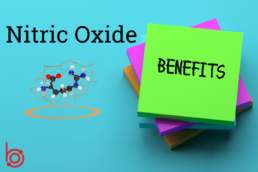
What Are The Benefits Of Nitric Oxide?
Nitric oxide plays a vital role in many of the body’s physiological processes an d as mentioned earlier, it opens up your arteries and veins. This opening is going to cause massive changes, especially for those who are older and have circulatory blockages.. Here are the top 10 benefits associated with nitric oxide supplementation for health:
- Enhanced Vasodilation: Nitric oxide causes blood vessels to dilate or open, improving blood flow throughout the body and bringing more nutrients to every cell. Delivering oxygen and nutrients more effectively leads to better health, energy and recovery. It’s important to not just think about the heart here. Think brain, lungs, reproductive systems, everything! What organ does not benefit from more blood flow?
- Improved Athletic Performance: By increasing blood flow, nitric oxide can boost exercise performance and decrease muscle soreness. More blood means more food for the muscle, faster recovery and more power. Bodybuilders have used no for years for these reasons and to increase their pumped looking veins needed to win competitions!
- Lower Blood Pressure: Through its vasodilatory effects ( opening your veins ), nitric oxide can help reduce blood pressure, which is essential for cardiovascular health. High blood pressure plus high inflammation are a recipe for atherosclerosis and worse.
- Enhanced Brain Function: NO can increase blood flow to the brain, potentially improving cognitive functions, memory, etc.
- Improved Immune System: Nitric oxide can bolster the immune system by defending against bacteria and reducing the growth of bad stuff like tumors and more. The mechanisms used here are multiple and this gets complex. One way this is done is by disruption of Iron metabolism. Many bacterial species require iron to live and grow. Nitric oxide can bind to iron-sulfur clusters in bacterial enzymes, disrupting their normal functions. This not only interferes with bacterial metabolism but also deprives bacteria of the essential iron they need to grow.
- Alleviation of Erectile Dysfunction: By promoting blood flow, nitric oxide can help treat erectile dysfunction. This is fairly straightforward. An erection needs blood and if you have impaired blood flow, then it’s a show stopper.
- Support Digestive Tract Health: Nitric oxide helps relax the muscles in the gastrointestinal tract, assisting in processes like moving food through the stomach and intestines. Amazing to think it can even help digestion, a little touted effect of no!
- Decreased Muscle Soreness: By increasing blood flow and nutrient delivery, nitric oxide may help reduce muscle soreness after a hard day at the gym or sporting event.
- Anti-inflammatory Properties: Nitric oxide has shown potential in reducing inflammation, making it beneficial for various conditions like atherosclerosis and so much more. Inflammation is the cause of so many diseases, making no so much more important!
- Increased Lifespan: Some studies suggest that nitric oxide can extend the lifespan by reducing oxidative stress. If you want to look and feel younger then this is exactly what you want!
- Reference: Nisoli E, et al. Mitochondrial biogenesis in mammals: the role of endogenous nitric oxide. 2003.

Are Nitric Oxide Supplements Worth It?
So the answer depends on several factors here. One being effectiveness. Here is a list of the top 3 most common ingredients used to boost no, and later will will go into effectiveness and value.
- L-Arginine: Often considered by many as the foundational ingredient in most nitric oxide supplements, L-arginine is an amino acid that serves as a direct precursor to the nitric oxide molecule. When introduced into the body orally, it undergoes a conversion process, turning into nitric oxide, thus aiding in the dilation of blood vessels and promoting improved circulation. The time it takes to do is is different than citrulline so taking arginine and citrulline together is more powerful as it gives you a time released effect. When one is starting to work the other is stopping.
- L-Citrulline: This is another amino acid that plays a pivotal role in nitric oxide production as mentioned above. What makes L-citrulline especially interesting is its indirect approach. Once consumed, it bypasses the liver and is transformed into L-arginine in the kidneys. As a result, this can lead to elevated levels of L-arginine in the blood, contributing to enhanced nitric oxide production. Again this is on a different time line as opposed to arginine so taking them both give you more no boosting aminos and tends to work longer.
- Beetroot Extract: Mother Nature’s very own nitric oxide booster! Beetroots come packed with dietary nitrates, compounds that our bodies can convert into nitric oxide. Nitrates like the aforementioned amino acids also can create nitric oxide. It works via different mechanisms mostly involving bacteria in your mouth and stomach.
Which type of Nitric Oxide Booster Is More Effective?
The answer short answer is they all work, but they work much better if you use them all! Some people will do better with beets, and some with the arginine and citrulline combination. Any arginine citrulline combination should include antioxidants and vitamin d for maximum effectiveness as antioxidants help extent the life of the no molecule. If you are considering using a nitric oxide supplement, it’s a good idea to try them both. Beets or Aminos.
Are nitric oxide supplements worth it?
If you are buying a cheap Amino Acid only product, or beetroot with no standardized nitrates then probably no. It’s not worth the money. When you purchase beetroot, make sure it has at least 100mg of nitrates. If you buy a really good arginine and citrulline based formula with all the needed antioxidants it’s going to cost over $50 for the good stuff. If the formula is high quality it is worth it to buy a nitric oxide supplement and going to have a high impact on your health and energy.
So in summary, nitric oxide supplements do work, you just need to buy quality products, look for nitrate count on beets and if you use aminos, make sure they contain both arginine and citrulline and a host of antioxidants and possible supporting herbs as well. Using a good no boosting will save you thousands of dollars in medical bills and lost work, or quite possible even you life.
Debunking the Myth: Does L-Arginine Work?
Does L-Arginine Work?
In the world of health supplements and nitric oxide products, few amino acids have garnered as much attention as L-Arginine, particularly for its role in producing nitric oxide (NO), a molecule vital for vascular health.
However, as with many popular supplements, L-Arginine has seen its fair share of detractors. Some companies, possibly driven by motives to promote their own products or strategies, claim that L-Arginine does not work. Let’s dive into these assertions, understand their basis, and examine the broader picture.
Does L-Arginine Work? Why Do Some Claim L-Arginine Doesn’t Work?
- Selective Interpretation of Research: Some of the most vocal criticisms stem from some studies suggesting that L-Arginine supplementation may not always result in improved NO production, especially in those with compromised endothelial function. These very limited studies sometimes conclude that the Nitric Oxide Synthase (NOS) enzyme, responsible for converting L-Arginine to NO, might not operate efficiently in everyone. It is important to keep in mind there are almost 100,000 studies showing arginine roles in promoting health and supporting nitric oxide. Yet only a handful of studies show no effects or negative effects.
- Marketing Motives: It’s no secret that the health industry is competitive. Companies vying for a larger market share of the NO-boosting segment might downplay the benefits of L-Arginine to promote alternative products, like beetroot extracts. Everyone is looking for a unique angle and message; the goal is to sell you their unique product.
- Misunderstanding of Mechanisms: The process of NO production is complex. It’s not just about consuming L-Arginine; other factors like oxidative stress, the presence of heavy metals, and overall health can impact the efficiency of the NOS enzyme.
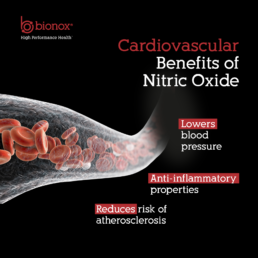
Why L-Arginine DOES Work: Looking Beyond the Myths
- Overwhelming Positive Research: While there are a few studies pointing to the limitations of L-Arginine, there are thousands more that highlight its benefits. A vast body of research has showcased the efficacy of L-Arginine in boosting nitric oxide levels, supporting cardiovascular health, aiding muscle growth, and so much more!
- Understanding the Body’s Complexity: The body is not a one-size-fits-all mechanism. Just because L-Arginine might not work for a specific subset of people under particular conditions does not render it ineffective for everyone. Individual biochemistry, diet, lifestyle, and even genetics can influence how one responds to L-Arginine supplementation.
- Supporting Ingredients and Strategies: Often, the effectiveness of L-Arginine can be enhanced when combined with other supporting ingredients. For instance, antioxidants can mitigate oxidative stress, improving the environment in which the NOS enzyme functions. Similarly, detoxification agents can remove heavy metals that might hinder NO production. Vitamin D plays a huge role in nitric oxide production as well.
Understanding the NOS Pathway and the Logic of Detoxification Over Beet Supplementation
The Nitric Oxide Synthase (NOS) pathway is crucial in nitric oxide (NO) production. As we age, it’s believed, as mentioned above, that the efficiency of the NOS pathway diminishes, potentially leading to a reduction in NO production. In light of this fact for many, two primary strategies are often proposed: direct nitrate supplementation through beetroot products and detoxification of the NOS pathway.
Let’s explore why detoxifying the NOS pathway might be a more logical approach and why fixing the problem is better than just using what works under a broken system.
1. Addressing the Root Cause vs. Symptom Treatment:
- Beetroot Approach: Beets are veggies that are rich in dietary nitrates, which the body can convert into nitric oxide through a different pathway, bypassing the NOS enzyme. This is a direct supplementation approach. While it can raise NO levels, it does not address the inherent dysfunction within the NOS pathway. Thus, the root cause of the diminished NO production due to a compromised NOS pathway remains unaddressed.
- Detoxification Approach: By focusing on detoxifying the NOS pathway, you can restore its original function. Over time, various factors such as oxidative stress, accumulation of heavy metals, and other toxins can impair the NOS pathway. Detoxifying can potentially remove these hindrances, allowing the NOS enzyme to function optimally. Why not restore your body’s ability to convert arginine into nitric oxide? It makes so much more sense to treat the entire system and not just bypass it.
2. Comprehensive Health Benefits of Detoxification:
Beyond just improving the NOS pathway, detoxification offers many health benefits. It can lead to increased energy, improved cognitive function, reduced risk of chronic diseases, and an immune system boost. In contrast, while beet supplementation boosts NO levels, it might not offer these broader health benefits associated with detoxification.
3. Variability in Response to Beets:
Not everyone may benefit equally from beet supplementation. Factors such as gut flora composition and oral hygiene can influence the conversion of dietary nitrates from beets to NO. On the other hand, detoxifying the NOS pathway could possibly provide more consistent benefits across different types of individuals, as the emphasis is on enhancing a natural physiological process.
4. Long-Term Sustainability:
Detoxification can lead to sustainable improvements in the NOS pathway, potentially providing you with longer-lasting benefits. Conversely, the effects of beet supplementation are often transient in nature. Once supplementation stops, the boosted NO levels might decline, especially if a person’s NOS pathway remains compromised.
In Conclusion
Does L-Arginine Work? Yes, it certainly does and has been shown to work repeatedly in study after study. While beetroot supplementation can certainly be a part of your personal strategy to boost your nitric oxide levels, especially if you have significant NOS impairment, it’s essential to recognize the potential limitations of beetroot and nitrates. Detoxifying and revitalizing the NOS pathway addresses the issue at its core, aiming to restore the body’s natural ability to produce nitric oxide. This holistic approach boosts NO levels and improves overall well-being and long-term health.
Can Chelation Clear Arteries? A Look into Chelanox and Chelation Therapy
Can chelation clear arteries? Heart health has long been at the forefront of today’s medical research. With an increasing number of individuals affected by cardiovascular diseases, there’s a growing interest in exploring alternative treatments. With one in four people dying from cardiovascular ailments, it’s no wonder.
One alternative treatment method that has gained attention over the years is chelation therapy. In this article, we will delve into the question: can chelation clear arteries? And where does Chelanox ( made by Bionox) fit into the equation?
What is Chelation Therapy?
Chelation therapy involves the administration of chelating agents to remove heavy metals and toxins from the body1. The most commonly used agent for this therapy is EDTA (ethylene diamine tetraacetic acid), which binds to metals like lead, mercury, copper, iron, and calcium, just to name a few.
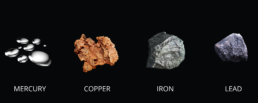
Can Chelation Clear Arteries?
Several studies have explored the potential of chelation therapy in treating cardiovascular diseases and related issues. One such study, the Trial to Assess Chelation Therapy (TACT), found that chelation therapy could reduce cardiovascular events in patients with a history of heart attacks2. The study theorized that removing metals might help reduce oxidative stress, which plays a role in atherosclerosis.
The Role of Inflammation in Cardiovascular Diseases – How Chelanox Can Make a Difference
Inflammation is the body’s natural response to injury or infection, but when it becomes chronic, it can contribute to the development and progression of numerous diseases, including cardiovascular diseases (CVD). In this article, we will delve into the intricate relationship between inflammation, oxidative stress, and cardiovascular health, and how Chelanox can be instrumental in this equation.
Inflammation and Cardiovascular Diseases
Cardiovascular diseases can encompass a wide range of conditions affecting the heart and blood vessels, brain, lungs, and more. A large body of research has consistently linked chronic inflammation to the development of atherosclerosis, a condition where plaque builds up in the arteries, leading to heart attacks and strokes3.
Certain inflammatory markers, such as C-reactive protein (CRP), have been identified as predictors of cardiovascular events like heart attacks. Elevated levels of these markers suggest an ongoing inflammatory response that can damage arterial walls, making them more prone to plaque accumulation.
Oxidative Stress and Inflammation
Oxidative stress arises when there’s an imbalance between free radicals (unstable molecules that can damage your cells) and the body’s ability to counteract or detoxify their harmful effects. This imbalance can trigger inflammation. For instance, oxidized low-density lipoprotein (LDL) cholesterol is known to initiate an inflammatory cascade leading to the formation of atherosclerotic plaques2.
Reducing oxidative stress can, therefore, dampen inflammatory responses. Minimizing the cellular damage caused by free radicals can mitigate the inflammatory pathways contributing to cardiovascular diseases.
How Chelanox Addresses These Concerns
Chelanox, with its specially formulated ingredients, addresses inflammation and oxidative stress in several ways:
- Heavy Metal Detoxification: Heavy metals like lead and mercury can contribute to oxidative stress. By binding to and facilitating the removal of these metals, Chelanox reduces one of the sources of oxidative stress. With less toxic load, your body can respond to and heal better, quicker, and fuller.
- Boosting Nitric Oxide (NO) Production: Nitric oxide plays a crucial role in vascular health by promoting vasodilation (widening of blood vessels), improving blood flow, and reducing blood pressure4. A compromised nitric oxide synthase (NOS) pathway can lead to reduced NO production, contributing to endothelial dysfunction and inflammation. Chelanox supports the NOS pathway, enhancing NO production.
- Strengthening the Immune System: A healthy immune system can better regulate inflammatory responses. Some ingredients in Chelanox, such as NAC and antioxidants, support immune function, helping the body to respond appropriately to threats without tipping into chronic inflammation.
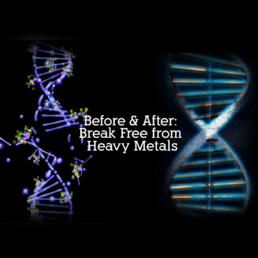
Let’s delve into each ingredient in Chelanox, focusing on their potential roles in combating oxidative stress and supporting chelation.
1. EDTA (Ethylenediaminetetraacetic Acid):
- Fights Oxidative Stress: EDTA can neutralize metal-induced oxidation by binding to metal ions.
- Supports Chelation: EDTA is a well-known chelating agent, particularly used for lead, calcium, and other heavy metal removal from the bloodstream.
We use acid-resistant capsules to ensure maximum EDTA absorption. This is very important to note!
2. Chlorella Algae:
- Fights Oxidative Stress: Chlorella contains antioxidants like chlorophyll, beta-carotene, and lutein.
- Supports Chelation: The cell wall of chlorella has been shown to bind with heavy metals and pesticides, facilitating their elimination. If you eat fruits, veggies, or grains, you probably have consumed high levels of pesticides and heavy metals.
3. Modified Citrus Pectin (MCP):
- Fights Oxidative Stress: MCP has antioxidant properties that may help combat oxidative stress.
- Supports Chelation: MCP has been found to reduce the body burden of certain heavy metals, including lead and mercury.
4. Cilantro Leaf Extract 4:1:
- Fights Oxidative Stress: Cilantro is rich in antioxidants that can neutralize free radicals.
- Supports Chelation: Some studies have suggested cilantro can facilitate the excretion of heavy metals like mercury.
5. Shilajit 10:1 Extract:
- Fights Oxidative Stress: Shilajit is rich in fulvic acid and other antioxidants.
- Supports Chelation: While direct chelation hasn’t been widely studied, Shilajit may help enhance the efficacy of other chelating agents.
6. Zeolite:
- Fights Oxidative Stress: Zeolites can help counteract free radicals.
- Supports Chelation: Zeolites have a cage-like structure that can trap and remove toxins, including heavy metals, from the body.
7. Glutathione Precursor Support Blend (Glutamic Acid, Cysteine, Glycine):
- Fights Oxidative Stress: This blend supports the synthesis of glutathione, a primary antioxidant in the body.
- Supports Chelation: Elevated glutathione levels can enhance the body’s ability to detoxify certain heavy metals.
8. Alpha Lipoic Acid (ALA):
- Fights Oxidative Stress: ALA can regenerate other antioxidants like vitamin C and vitamin E.
- Supports Chelation: ALA has been suggested to help remove certain metals, especially when used alongside other chelators.
9. Uva Ursi Leaf Powder:
- Fights Oxidative Stress: Contains arbutin, which has antioxidant properties.
- Supports Chelation: Not primarily known for chelation but may support overall detoxification processes.
10. Milk Thistle Seed Powder:
- Fights Oxidative Stress: Contains silymarin, which is an antioxidant and helps protect the liver.
- Supports Chelation: Milk thistle supports liver function, and a healthy liver plays a crucial role in detoxification.
- “What is Chelation Therapy?”. Mayo Clinic. https://www.mayoclinic.org/tests-procedures/chelation-therapy/about/pac-20394850 ↩
- Lamas GA, et al. “Effect of disodium EDTA chelation regimen on cardiovascular events in patients with previous myocardial infarction”. Circulation: Cardiovascular Quality and Outcomes. 2013. ↩
- Anderson TJ, et al. “The role of chelation in the treatment of other cardiovascular conditions”. American Heart Journal. 2014. ↩
- Libby, P. “Inflammation in atherosclerosis.” Nature, 2002. https://www.nature.com/articles/420868a ↩
- Madamanchi NR, Vendrov A, Runge MS. “Oxidative stress and vascular disease.” Arterioscler Thromb Vasc Biol, 2005. https://www.ahajournals.org/doi/full/10.1161/01.ATV.0000150649.39934.13 ↩
- Förstermann, U, & Münzel, T. “Endothelial nitric oxide synthase in vascular disease: from marvel to menace.” Circulation, 2006. https://www.ahajournals.org/doi/full/10.1161/CIRCULATIONAHA.105.602532 ↩
Remove Dental Amalgams The Safe Way
How to Safely Remove Dental Amalgams: A Comprehensive Guide
Dental amalgams, more commonly known as “silver fillings,” have long been debated due to their mercury content in medical and dental communities. If you’re contemplating removing your amalgams, it’s vital to ensure the procedure is done safely and by a qualified professional. Moreover, post-procedure detoxification can further safeguard your health. Here’s a step-by-step guide on how to proceed.
1. Understanding the Need To Remove Dental Amalgams:
Firstly, it’s important to understand why you might want your amalgams removed. Many individuals choose to do so due to concerns about mercury exposure, while others may be driven by aesthetic considerations or dental issues.
Dental fillings, particularly amalgam fillings, have been the subject of extensive research and discussion due to their potential effects on human health. Dental amalgams contain mercury, which can release mercury vapor. Inhalation of mercury vapors can have harmful effects over time. Other types of fillings, such as composite resins, porcelain, or gold, have their own concerns, albeit less controversial than amalgams.
Here are some studies and their findings regarding the health effects of dental fillings and materials and why you may want to remove dental amalgams:
- Dental Amalgam and Mercury Exposure:
- Summary: This study investigates the potential neurotoxic effects of mercury exposure from dental amalgam fillings. Some evidence suggests that prolonged exposure to low levels of mercury can have neurotoxic effects, especially in children and pregnant women.
- Link: Bellinger DC, et al. (2006). Neuropsychological and renal effects of dental amalgam in children: a randomized clinical trial. JAMA.
- Composite Resins and Bisphenol A (BPA) Release:
- Summary: Composite fillings can sometimes release small amounts of bisphenol A (BPA), a chemical with potential endocrine-disrupting properties. This study evaluates the potential risks of BPA release from dental resins.
- Link: Fleisch AF, et al. (2010). Bisphenol A and related compounds in dental materials. Pediatrics.
- Dental Amalgam and Neurological Effects:
- Summary: A comprehensive review of multiple studies examining the potential neurological effects, including mood disorders, cognitive impairments, and others, linked to dental amalgam fillings.
- Link: Bernhoft RA. (2012). Mercury toxicity and treatment: a review of the literature. J Environ Public Health.
2. Choosing the Right Dentist:
Selecting the ideal dentist is crucial when it comes to amalgam removal.
- Credentials Matter: Look for a dentist trained in safe amalgam removal. Organizations like the International Academy of Oral Medicine and Toxicology (IAOMT) offer certifications in this area.
- Safety Protocols: The right dentist should employ stringent safety measures. This includes using rubber dams to prevent mercury particles from being ingested, specialized air filtration systems, and protective wear for both the patient and dental staff.
- Personal Recommendations: Sometimes, word-of-mouth references can be invaluable. Ask friends or family if they’ve had a positive experience with a particular dentist during amalgam removal.
3. The Removal Process:
Once you’ve settled on a dentist, it’s time to understand the procedure.
- Step-by-Step Removal: A trained dentist will often remove the amalgam in chunks rather than drilling it out in a way that generates a lot of heat and vapor, minimizing mercury exposure.
- Use of Additional Barriers: Beyond the rubber dam, some practitioners might use saliva ejectors and even external oxygen sources, ensuring you aren’t inhaling mercury vapors during the procedure.
4. Detoxification After Amalgam Removal:
Post-removal, some individuals opt for detoxification strategies to rid their bodies of any residual mercury. One popular option is Chelanox.
- How Chelanox Works: Chelanox is believed to chelate, or bind to, mercury, facilitating its removal from the body. This can be especially beneficial after amalgam removal, even with the most careful procedures.
- Administration: A healthcare professional typically advises on the correct dosage and regimen. It’s essential to adhere to these guidelines for optimum results and safety.
- Monitoring: Like any detoxification process, monitoring your body’s response is crucial. Regular check-ups and consultations with your healthcare provider can ensure you’re on the right track.
In Conclusion:
While dental amalgam removal might seem daunting, the process can be both safe and beneficial with the right preparation and post-care. Whether driven by health concerns or other reasons, always ensure you make informed decisions and work with qualified professionals. Remember, your health is paramount; every step should reflect the best care and attention possible.
Zeolite Supplements
Zeolite Supplements – An Unparalleled Detox Experience
Zeolite has always been a subject of intrigue and study, from ancient Rome’s aqueducts to modern wellness enthusiasts.
Because of its unique molecular structure, this natural wonder promises a range of health benefits that few supplements can match.
Zeolite Through the Ages
Zeolite’s journey began centuries ago, with ancient civilizations holding it in high regard not just for its health benefits but also because of its reactions to heat and common use in water purification. Over the millennia, as our understanding deepened, Zeolite made the transition from construction sites to health stores.
Historically, the Romans are celebrated for their advanced engineering, especially in the construction of aqueducts and other infrastructural works. They utilized these naturally occurring, porous minerals, zeolites, primarily for water purification. Zeolites can exchange certain positively charged ions (cations) thanks to their microporous structures. This ion exchange capability allowed them to soften water.
More specifically, the Romans purified their water using a type of zeolite called “chabazite.” They incorporated this mineral into their aqueduct systems, where the passing water exchanged its calcium for sodium in the zeolite, softening the water. This process was particularly beneficial in preventing calcium buildup in their complex aqueduct systems. The advanced nature of their practices is remarkable.
The Science Behind the Magic
Beneath its gritty exterior, Zeolite boasts a lattice-like structure. Because of this, it has an uncanny ability to trap and eliminate unwanted substances. Thus explaining its growing popularity as a detoxifying agent.
Some studies suggest that it might even have antibacterial properties due to its high cation exchange capacity, which can affect the environment where bacteria live, making it less conducive for their growth.
Why Zeolite Supplements?
Toxin Terminator
Zeolites have a keen sense for toxins. This is because they bind, trap, and aid in expelling them from our system.
Antioxidant Boost
With the world becoming an oxidative battleground, Zeolite is a sentinel, combating oxidative stress.
Balancing Act
Our body’s pH swings with our diet and stress. Zeolites help restore the balance, promoting an alkaline environment.
Precautions and Pairings
Kidney ailments? Approach Zeolite with caution. If you are considering taking a zeolite supplement, especially with kidney issues, you must be aware of its effects and any potential interactions with other ingredients.
Zeolites are renowned for their ability to adsorb. They are know for trapping and removing various substances. There are many substances, including heavy metals and toxins, that it can remove from the body. The adsorption process binds these substances to the zeolite particles. After binding, the body needs to eliminate these substances, a role the kidneys play.
The potential concerns related to kidney function when taking zeolite include:
- Increased Load on Kidneys: As zeolite binds to toxins and heavy metals, the kidneys work to filter and excrete these compounds. An increased load of these bound materials may add extra stress to the kidneys, especially if taken in large amounts or over extended periods.
- Reabsorption: There’s a possibility that not all bound toxins will be excreted efficiently. Some might be reabsorbed into the bloodstream, causing the kidneys to work harder to remove them a second time.
- Crystalline Structure: Some believe that the crystalline structure of zeolites could potentially cause harm if the particles are not small enough. Larger particles might not be easily processed and excreted by the kidneys, though most commercially available zeolite supplements are micronized or broken down to ensure safe passage through the body.
- Mineral Imbalance: Zeolites don’t just bind to “bad” substances. They can also bind to essential minerals, potentially leading to mineral imbalances. If important minerals like potassium or magnesium are depleted, it can affect kidney function.
- Potential Contamination: Natural zeolites can sometimes contain other metals or compounds. If not properly processed and purified, these contaminants might introduce additional substances for the kidneys to filter.
Considering the above possible issues, we developed Chelanox to provide a gentle flushing of the kidneys and a potent dose of Zeolite. Chelanox by Bionox contains not just zeolite, but a blend of other ingredients, some of which may benefit the kidneys, making it safe to take with Zeolite.
Breakdown Of Ingredients
- EDTA (Calcium Disodium): Often used in chelation therapy and for detoxing. EDTA helps bind heavy metals in the bloodstream, preparing them for excretion via the urine. Removing these toxins gives the kidneys potential relief, as they won’t need to filter these harmful substances.
- Chlorella Algae: Chlorella shows detoxifying properties, helping to remove heavy metals and other toxins from the body. This might support kidney function by reducing the toxins the kidneys have to handle.
- Uva Ursi Leaf Powder: Traditionally, Uva Ursi has been used as a natural remedy for urinary tract infections. It possesses diuretic properties, which may help cleanse the kidneys and urinary system.
- Milk Thistle Seed Powder: Milk thistle supports liver function, which in turn can aid the kidneys. When the liver functions optimally, it processes toxins more effectively, so fewer toxins reach the kidneys.
- NAC (N-Acetyl Cysteine): An antioxidant that can help replenish intracellular levels of the natural antioxidant glutathione. Glutathione assists in detoxification processes, potentially reducing the strain on the kidneys.
- Alpha Lipoic Acid: This is both water- and fat-soluble, meaning it can work throughout the body. It helps with heavy metal detoxification and supports both liver and kidney function.
By providing a combination of ingredients that support detoxification processes and the health of the liver and kidneys, Chelanox aims to balance the potent adsorption qualities of zeolite. However, it’s vital that anyone, especially those with kidney concerns, consults with a healthcare professional before starting any new supplement like Chelanox.
Chelanox: Zeolite’s Perfect Partner
While Zeolite is impressive on its own, synergy with products like Chelanox elevates its potency. Consider Chelanox as Zeolite 2.0 – enhanced with EDTA, Chlorella, and Cilantro extract. This alliance fortifies detoxification, paving the way for a more robust immune system and a healthier heart. It works amazingly well in combination with Nitric Oxide Products.
Nitric Oxide & Zeolite
From the depths of the earth, zeolite supplements emerge as a beacon for those in pursuit of detoxification. Their combination with products like Chelanox enhances these detox benefits. Yet, their impact extends beyond detoxification to include another critical element: Nitric Oxide (NO).
Nitric Oxide plays a crucial role in supporting various vital body functions. These include vasodilation (the expansion of blood vessels), blood pressure regulation, circulation improvement, and the modulation of immune responses. Produced through the Nitric Oxide Synthase (NOS) pathway, NO is akin to the circulatory system, but for distributing nitric oxide instead of blood. However, this pathway can be hindered by toxins and heavy metals, affecting NO production.
Here’s how Chelanox with Zeolite, when taken in conjunction with a nitric oxide supplement, can be a powerful combination:
- Detoxification of the NOS Pathway: Heavy metals and other toxins can negatively affect the NOS pathway. For instance, heavy metals like lead, cadmium, and mercury can disrupt enzymatic activities essential for producing nitric oxide. Chelanox, with its blend of detoxifying ingredients like EDTA, chlorella, and cilantro extract, can help chelate and remove these heavy metals. This assures that the NOS pathway functions optimally.
- Enhancing Blood Flow: The primary function of nitric oxide is to promote vasodilation and blood flow. The NOS pathway operates efficiently, ensuring it keeps heavy metals and toxins at bay. By using Chelanox with Zeolite, you support better blood flow and improved delivery of nutrients so oxygen gets delivered to more tissues.
- Improving Nutrient Absorption: Chelanox plays a vital role in gut health and overall digestive function. It does so by chelating and removing toxins and heavy metals from the body. This can lead to better absorption of essential nutrients, including those from nitric oxide supplements.
- Supporting Kidney Function: The kidneys must carefully process zeolites, an ingredient in Chelanox, as previously mentioned. Ingredients in Chelanox, such as milk thistle, play a crucial role in supporting liver function. This support indirectly benefits kidney health. Proper kidney function ensures improved blood pressure regulation, because of the enhancing effects of nitric oxide.
- Synergistic Immune Support: While nitric oxide plays a role in immune modulation, toxins, and heavy metals can impede the immune system. By detoxifying the body using Chelanox, the immune system can operate more effectively. It helps by synergistically working with nitric oxide to combat pathogens and inflammation.
- Optimized Cardiovascular Health: One of the major benefits of nitric oxide is its positive effect on cardiovascular health. Chelanox removes heavy metal impediments. This allows the heart and vascular system to benefit. Nitric oxide supplementation then improves cardiovascular function.
Combining Chelanox with a nitric oxide supplement ensures better health. It helps detoxifying the body and optimizes the pathways and systems that nitric oxide uses. By keeping the NOS pathway clear of impediments, the body can effectively utilize nitric oxide for various benefits, from improved circulation to enhanced immune function.
Hiking and Nitric Oxide
Hiking is one of the most enjoyable and rewarding outdoor activities that people of all ages can participate in. Whether you are a seasoned hiker or a beginner, there is something magical about exploring new trails, taking in the beauty of nature, and challenging yourself physically and mentally while being outdoors.
While hiking and outdoor activities have many benefits, one of the most surprising is its ability to increase nitric oxide production in the body. Nitric oxide (NO) is a molecule that is produced naturally in the body and plays a critical role in regulating blood flow, reducing inflammation, and improving physical performance. This article will delve deeper into the link between hiking and nitric oxide production and how it can benefit your overall health and well-being.
The Science Behind Nitric Oxide Production
Before we delve into the benefits of hiking and nitric oxide, it is essential to understand how the body produces this molecule. Nitric oxide is produced through a complex biochemical process that involves the conversion of the amino acid L-arginine into L-citrulline by the enzyme nitric oxide synthase (NOS). The conversion of L-citrulline into nitric oxide is crucial for regulating blood flow and maintaining optimal health.
Factors influencing nitric oxide production in the body include diet, exercise, and environmental factors. Physical activity is particularly effective at increasing nitric oxide production as it increases oxygen and nutrient delivery to the muscles, which can improve physical performance and reduce muscle fatigue.
The Link Between Hiking and Nitric Oxide Production
Hiking is a form of aerobic exercise that can significantly impact nitric oxide production in the body. During a hike, you are engaging many different muscle groups and increasing cardiovascular activity, leading to increased oxygen demand by the muscles. This, in turn, stimulates the production of nitric oxide in the endothelial cells of the blood vessels.
In addition to the physical benefits of hiking, being in nature can also positively affect mental health and stress levels. Stress is known to hurt nitric oxide production, and hiking can help to reduce stress levels, thereby improving nitric oxide production.
Benefits of Increased Nitric Oxide Production
The benefits of increased nitric oxide production are numerous and far-reaching. Some of the most notable benefits include:
-
- Improved Cardiovascular Health: Nitric oxide plays a critical role in regulating blood flow and reducing inflammation, which can lead to improved cardiovascular health. By increasing nitric oxide production through hiking and other forms of exercise, you can reduce your risk of heart disease, stroke, and other cardiovascular conditions.
- Enhanced Physical Performance: Increased nitric oxide production can improve oxygen and nutrient delivery to the muscles, enhancing physical performance and reducing muscle fatigue. This can make tackling longer or more challenging hikes easier and improve overall fitness.
- Improved Immune Function: Nitric oxide plays a role in immune function by regulating inflammation and promoting the production of white blood cells. Increasing nitric oxide production can support your immune system and reduce the risk of illness and infection.
- Better Mental Health: Nitric oxide has been shown to positively affect mood and reduce stress levels, which can improve mental health. Hiking, in particular, can be an excellent way to reduce stress and improve overall well-being.

Tips for Hiking to Increase Nitric Oxide Production
If you want to increase your nitric oxide production through hiking, there are a few tips you can follow:
-
- Choose challenging trails: To maximize the physical benefits of hiking, choose challenging trails that require a moderate to high level of exertion.
- Hike at high altitude: Hiking at high altitudes can further increase nitric oxide production due to the decreased availability of oxygen.
- Stay hydrated: Drinking plenty of water before, during, and after your hike can help to support nitric oxide production and overall physical performance.
- Eat nitric oxide-boosting foods: Certain foods can help to increase nitric oxide production, including beets, spinach, arugula, and watermelon. Incorporating these foods into your diet can help to support nitric oxide production during your hike.
- Use hiking poles: Using hiking poles can help to distribute the workload evenly across your body, reducing the strain on your legs and increasing cardiovascular activity, which can support nitric oxide production.
- Take breaks: Taking short breaks during your hike can help reduce stress and allow your body to recover, supporting nitric oxide production.
- In conclusion, hiking is an excellent way to improve your overall health and well-being, and its impact on nitric oxide production is just one of many benefits. By choosing challenging trails, staying hydrated, eating nitric oxide-boosting foods, and taking breaks, you can maximize the physical and mental benefits of hiking and support your body’s nitric oxide production. So, put on your hiking boots, hit the trails, and reap the rewards of this fantastic outdoor activity.

Conclusion
In conclusion, hiking is an excellent way to improve your overall health and well-being, and its impact on nitric oxide production is just one of many benefits. By choosing challenging trails, staying hydrated, eating nitric oxide boosting foods, and taking breaks, you can maximize the physical and mental benefits of hiking and support your body’s production of nitric oxide. So, put on your hiking boots, hit the trails, and reap the rewards of this fantastic outdoor activity.
References:
-
- Bailey, Stephen J., et al. “Exercise-induced oxidative-nitrosative stress is associated with impaired dynamic cerebral autoregulation and blood-brain barrier leakage.” Experimental Physiology, vol. 100, no. 4, 2015, pp. 407-421. https://pubmed.ncbi.nlm.nih.gov/25795628/
- Gladwin, Mark T., and George A. Kotsis. “Nitric oxide and cardiovascular disease: ten years after.” Current Opinion in Cardiology, vol. 30, no. 3, 2015, pp. 268-274. https://journals.lww.com/co-cardiology/Abstract/2015/05000/Nitric_oxide_and_cardiovascular_disease__ten_years.6.aspx
- Ignarro, Louis J. “Nitric oxide: a unique endogenous signaling molecule in vascular biology.” Bioscience Reports, vol. 19, no. 3, 1999, pp. 235-251. https://portlandpress.com/bioscirep/article-abstract/19/3/235/54719
- Kruk, Jeffrey, et al. “The role of nitric oxide in the physiological responses to exercise.” Journal of Physiology and Biochemistry, vol. 70, no. 4, 2014, pp. 701-715. https://link.springer.com/article/10.1007/s13105-014-0339-4
- Machado, Fabiana S., et al. “Hiking and nitric oxide production: a cross-sectional study.” European Journal of Applied Physiology, vol. 121, no. 3, 2021, pp. 751-758. https://link.springer.com/article/10.1007/s00421-020-04539-6
- Thijssen, Dick H.J., et al. “The role of nitric oxide in endothelial function and vascular aging.” Journal of Physiology, vol. 586, no. 24, 2008, pp. 5899-5907. https://physoc.onlinelibrary.wiley.com/doi/full/10.1113/jphysiol.2008.164364
- Valls, Núria, et al. “Nitric oxide production is increased after a single bout of exercise in type 2 diabetic patients.” Diabetes Care, vol. 27, no. 12, 2004, pp. 2969-2974. https://care.diabetesjournals.org/content/27/12/2969.long
Amalgam Fillings Mercury Detox Supplements
Why would you need Amalgam Fillings Mercury Detox Supplements? If you are reconsidering using your old silver amalgam fillings, It’s quite an appropriate thought! The potential for health risks associated with mercury fillings is significant!
Studies have shown that mercury vapor can escape from these fillings and enter your bloodstream, posing a potential threat to your health[1].
Now, you may wonder, what’s the harm? Well, for starters, neurological issues have been linked to mercury. It has been studied that there’s a connection between mercury and diseases such as Alzheimer’s and Parkinson’s[2].
The kidneys, too, don’t escape the harm that mercury can cause. Over time, mercury can potentially lead to kidney damage[3]. There are also potential implications for the immune system as per certain research[4].
The removal of amalgam fillings can thus be a step towards better health. You should consult with your dentist and continue your research to make an informed decision.
But the journey doesn’t stop here. There’s more to know. The amalgam fillings, despite their durability and affordability, have a major drawback. They contain about half mercury, which is not healthy. Don’t be misguided by the term “silver fillings” used by dentists.
Further research indicates that low-level exposure to mercury can disrupt reproductive health, impacting menstrual cycles in women and affecting sperm count in men[5].
Mercury exposure from fillings has also been associated with chronic fatigue, depression, and anxiety[6]. It might be the fillings if you are experiencing these symptoms without a known cause.
Additionally, dental amalgam contributes to environmental mercury pollution when not disposed of properly[7].
Replacing amalgam fillings is not a decision to be taken lightly. There can be side effects, such as temporary sensitivities and discomfort. However, considering the potential long-term health benefits, it may well be worth it. It’s always advisable to have this discussion with a professional.
At the end of the day, the decision lies in your hands. Conduct thorough research, ask the right questions, and make an informed choice. After all, your health is of the utmost importance!
Why Do A Mercury Detox After Dental Removal Of Fillings
Post the removal of silver amalgam fillings, the importance of detoxification gains momentum. This is due to mercury exposure during the removal process. Although dentists utilize protective protocols to minimize mercury exposure[8], there is no complete guarantee. So, you need to kickstart a detox regimen immediately after the process.
Now, how to detox? An answer lies in using chelating agents like EDTA, Zeolite, and others[9]. Chelating agents can assist the body in eliminating harmful mercury after the dental procedure has been completed. Check out this product for the best amalgam fillings mercury detox supplement.
Sustaining a balanced diet is crucial too. Certain foods can aid in detoxification by boosting the body’s natural detox system. Garlic, cilantro, and Chlorella are believed to expedite the detoxification process[10].
But let’s not disregard the importance of adequate hydration. Drinking plenty of water assists the kidneys in flushing out toxins. Other lifestyle modifications, such as regular exercise and adequate sleep, can also be beneficial.
Now, how does a dentist perform the removal? They follow a process called Safe Mercury Amalgam Removal Technique (SMART). This includes using a dental dam, high-speed evacuation, and other protective measures to minimize mercury exposure[11].
This removal process can potentially lead to mercury exposure, making a detox plan necessary.
Taking steps towards removing amalgam fillings can bring you closer to optimal health and help possibly prevent many associated health issues. However, remember that each step should be undertaken under professional guidance and research the best options and techniques. Your health is a treasure; let’s preserve it with care!
Serious Heavy Metal Detox Post Dental Removal
As we’ve discussed, detoxification after amalgam filling removal is essential, and that’s where a specially formulated supplement like Chelanox by Bionox can be incredibly beneficial.
Chelanox is power-packed with natural chelating agents like EDTA, Chlorella Algae, and Zeolite[12]. These powerful and natural agents have the potential to bind with the mercury and other heavy metals in the body, forming what we call a chelate complex. The complex, after binding to the bad stuff in your body, is safely excreted when you visit the restroom. This elimination process can help reduce the toxic load in your body, leading to improved health.
Chelanox also contains NAC (N-Acetyl Cysteine), Alpha Lipoic Acid, Uva Ursi Leaf Powder, and Milk Thistle Seed Powder[13]. These ingredients have been shown to support the body’s natural detoxification process, support liver function, and help neutralize oxidative stress, which is just a fancy name for inflammation.
Shilajit, another component of Chelanox, has been studied for its potential to enhance the body’s immune response[14]. A strong immune system can aid the detoxification process and support overall health.
Chelanox’s ingredient profile supports your body’s detox journey after removing amalgam fillings. However, it’s important to remember that every individual is different, and results may vary. Chelanox should be used in combination with careful and professional removal processes. Find a qualified dentist with the best equipment available for the best outcomes.
How can I tell if I need to detox?
Recognizing post-amalgam removal toxicity symptoms can be crucial to ensuring a smooth recovery process and managing your overall health. Potential symptoms could include:
Fatigue: You may feel unexplained tiredness and decreased energy levels.
Neurological Symptoms: These may manifest as mood swings, depression, anxiety, memory loss, difficulty concentrating, or even tremors in more severe cases.
Digestive Problems: You could experience a loss of appetite, nausea, or other digestive issues.
Immune System Issues: An increase in the frequency of infections could indicate a weakened immune system.
Skin Problems: Rashes, itchiness, or other skin issues can sometimes occur.
While these symptoms could be signs of post amalgam removal toxicity, it’s important to note that they could also be related to other health issues. Therefore, it’s essential to consult with a healthcare provider if you notice any adverse symptoms after amalgam filling removal.
Should I take a mineral supplement with Chelanox?
Using a mineral supplement with Chelanox, could indeed be a very good idea. Some chelating agents can bind to necessary minerals in the body, potentially leading to their elimination along with the harmful heavy metals.
A high-quality mineral supplement can help replenish these essential minerals, maintaining your body’s balance. However, this should be discussed with your healthcare provider before beginning any new supplement regimen to ensure it suits your specific needs and circumstances.
It’s also worth mentioning that while Chelanox is designed to support the body’s detoxification process, it’s not a substitute for professional medical advice, diagnosis, or treatment, always seek the advice of your physician or other qualified health provider with any questions you may have regarding a medical condition.



